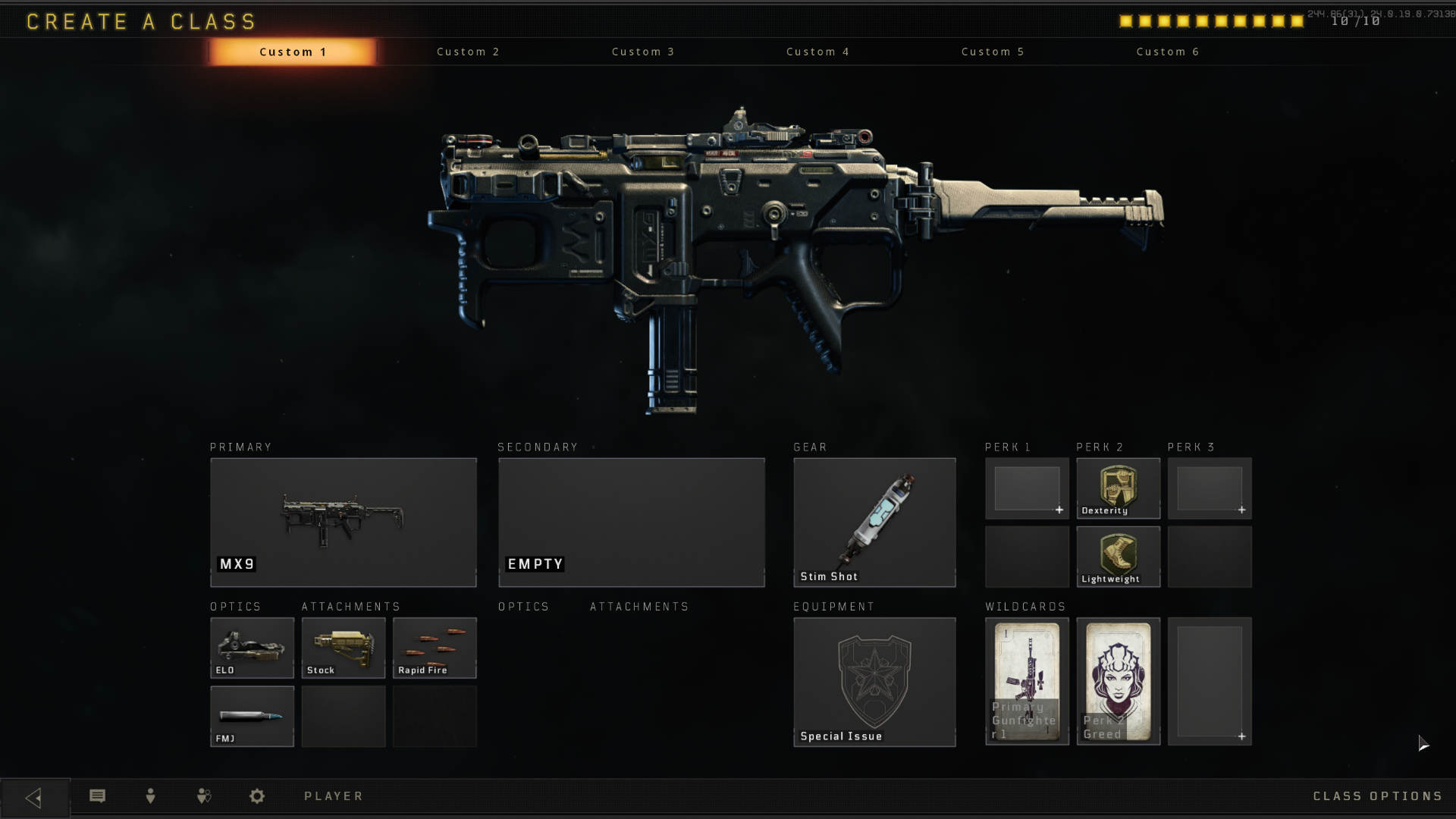The Online Troll
Online gaming is a place where people from all walks of life come together to enjoy a shared passion for virtual adventures. However, amidst the vast majority of gamers who play fair and respect others, there exists a troublesome minority known as the online trolls.
Online trolls are individuals who derive pleasure from disrupting the gaming experience for others. They intentionally provoke and harass fellow players, employing various tactics to incite anger and frustration. These individuals thrive on the negative reactions they elicit, which gives them a sense of power and superiority.
One of the most common tactics employed by online trolls is the use of offensive language. They spew hateful comments, derogatory slurs, and engage in personal attacks, all aimed at demoralizing their victims. The anonymity of online platforms emboldens these trolls, allowing them to hide behind screen names and avatars while taking pleasure in causing distress to others.
Another tactic used by online trolls is team sabotage. They intentionally disrupt team coordination, sabotage strategies, and create chaos within the game. This behavior not only ruins the experience for others but also hinders teamwork and fair play, ultimately undermining the integrity of the game itself.
Online trolls thrive on the attention they receive from their disruptive actions. Their primary goal is to cause a reaction and keep the focus on themselves. As a result, they often go to great lengths to provoke others, resorting to relentless taunting, provocation, and harassment. This persistent behavior can create a toxic atmosphere within the gaming community, discouraging new players and driving away those who seek a positive and enjoyable experience.
The impact of online trolls extends beyond the gaming realm. The emotional toll inflicted on victims can lead to stress, anxiety, and even depression. Furthermore, the negative reputation associated with online gaming communities prevents them from growing and attracting a wider audience.
Addressing the presence of online trolls is essential for the future of online gaming. Game developers and platform administrators must implement strict rules and codes of conduct to deter and punish such behavior. Encouraging players to report instances of trolling and establishing effective moderation systems are crucial steps in maintaining a safe and enjoyable gaming environment.
As gamers, it is important for us to remember that the power to counter online trolls lies within our hands. By refusing to engage with their disruptive behavior, we deny them the attention they seek. Instead, promoting positivity, kindness, and respect can create a culture that discourages trolling and fosters a welcoming community of like-minded individuals.
While online trolls may continue to exist, collectively, we have the power to mitigate their impact and create a gaming environment that celebrates fair play, camaraderie, and mutual respect.
The Cheater
Every competitive online game has its fair share of players who resort to cheating in order to gain an unfair advantage over others. These individuals, known as cheaters, not only undermine the integrity of the game but also spoil the experience for fellow gamers.
Cheating comes in various forms, ranging from using unauthorized software or hacks to manipulate the game mechanics, to exploiting glitches and bugs for personal gain. By engaging in these illicit activities, cheaters gain an unfair advantage, making it virtually impossible for honest players to compete on a level playing field.
One of the most common forms of cheating involves the use of aimbots and wallhacks. Aimbots are programs that automatically aim at opponents, ensuring near-perfect accuracy in shooting games. Wallhacks allow players to see through walls, effectively giving them the ability to know the location of their opponents at all times. These tools provide an unfair advantage and severely disrupt the balance of gameplay.
Cheaters not only spoil the experience for other players but also harm the reputation of the game itself. When news spreads of rampant cheating within a game, potential new players may be deterred from joining the community, leading to a decline in active player base and revenue for game developers.
Many game developers invest significant resources in implementing anti-cheat measures to combat cheating. These measures include sophisticated detection systems, regular updates to address vulnerabilities, and a reporting system where players can flag suspicious behavior. However, cheaters are often determined and continually adapt to bypass these safeguards, leading to an ongoing battle between developers and those seeking to exploit the game.
Dealing with cheaters requires a collective effort from the gaming community. Reporting suspected cheaters can help developers identify and take action against them. Additionally, fostering a culture of fair play and ethical gaming practices can discourage cheating and promote a healthier gaming environment.
While it can be frustrating to encounter cheaters in online games, it’s important not to resort to cheating ourselves. Engaging in cheating only perpetuates a toxic cycle and undermines the integrity of the game even further. Instead, we should focus on improving our skills, seeking fair competition, and enjoying the game for what it is.
By standing against cheating and supporting the developers’ efforts to combat it, we can send a clear message that cheating is not accepted within the gaming community. Together, we can create a safe and fair environment where players can truly test their skills and enjoy the thrill of competitive gaming.
The Rager
In the highly competitive world of online gaming, it’s not uncommon to encounter players who let their emotions get the best of them. These individuals, commonly referred to as “ragers,” are known for their extreme and often inappropriate outbursts during gameplay.
Ragers exhibit a lack of control over their anger and frustration, which manifests in verbal abuse, aggressive behavior, and excessive profanity. They may direct their rage towards teammates, opponents, or even themselves, creating a toxic atmosphere that can negatively impact the overall gaming experience for everyone involved.
One of the defining characteristics of a rager is their tendency to blame others for their own mistakes or shortcomings. Instead of accepting responsibility and learning from their errors, they lash out and berate others, creating a hostile environment that discourages teamwork and collaboration.
These explosive outbursts not only spoil the mood for fellow players but also contribute to a negative perception of the gaming community as a whole. New players may be deterred from joining online games due to the fear of encountering these toxic individuals, thus limiting the growth and diversity of the gaming community.
Dealing with a rager can be challenging, as their anger often clouds their judgment and rationality. It’s important to remember that their outbursts are a reflection of their own issues and frustrations, and not a reflection of your own skills or worth as a player.
One approach to handling a rager is to remain calm and composed. Engaging in a tit-for-tat exchange will only escalate the situation further. Instead, focus on your own gameplay and use communication tools to maintain a positive and constructive dialogue with your teammates.
Another tactic is to distance yourself from the rager. Ignoring their toxic behavior and focusing on the game can help you avoid getting caught up in their negativity. Remember, your main goal is to enjoy the game and have a good time, regardless of the rager’s presence.
However, it’s essential to report instances of extreme toxicity to game administrators or moderators. They can take the necessary actions to address the issue and maintain a healthy gaming environment.
As members of the gaming community, it is our responsibility to promote a positive and respectful atmosphere during gameplay. By being mindful of our own behavior and treating others with courtesy, we can challenge the toxic culture perpetuated by raggers and pave the way for a more enjoyable gaming experience for everyone.
The Griefer
In the world of online gaming, there is a certain breed of player known as the “griefer.” These individuals find joy and entertainment in causing grief and frustration to others, often through disruptive and malicious behavior.
Griefers thrive on creating chaos and ruining the gaming experience for their fellow players. They engage in actions such as team-killing, stealing valuable in-game resources, deliberately sabotaging game objectives, and engaging in unsportsmanlike conduct, all with the intention of irritating and frustrating others.
One of the most common forms of griefing is team-killing, where a player deliberately kills their own teammates, depriving them of the opportunity to contribute to the game and hindering team cooperation. This not only disrupts gameplay but also creates a hostile and toxic environment within the team.
Griefers also take pleasure in stealing valuable in-game resources or items from other players. They may engage in scamming or deception to trick others into giving up their hard-earned rewards, causing feelings of betrayal and anger.
Furthermore, griefers often go out of their way to sabotage game objectives, intentionally preventing progression or completing tasks required for success. Whether it’s blocking important pathways, interfering with key mechanisms, or disrupting communication channels, their goal is to create frustration and hinder the overall gaming experience.
Dealing with griefers can be immensely frustrating, but it’s important to remember not to stoop to their level. Engaging in retaliatory griefing only perpetuates a cycle of negativity, ultimately ruining the experience for everyone involved.
Instead, it’s crucial to report instances of griefing to game administrators or moderators. By doing so, you alert the appropriate authorities to address the issue and potentially take disciplinary actions against the griefer.
Preventing griefing in online gaming requires the collective effort of the gaming community and game developers. Implementing strict rules and systems to deter and punish griefers, such as temporary or permanent bans, can help create a safer and more enjoyable environment for all players.
As players, it’s our responsibility to foster a positive and inclusive gaming community. By promoting teamwork, sportsmanship, and respectful behavior, we can challenge the culture of griefing and ensure that online gaming remains an enjoyable and fulfilling experience for everyone.
The Smurf
In the realm of online gaming, the term “smurf” refers to experienced players who create new accounts or use alternate identities to play against less skilled opponents. While it may seem harmless, the act of smurfing can have detrimental effects on the gaming experience and the overall integrity of the game.
The main motivation behind smurfing is the desire to dominate and win easily. Skilled players create new accounts or disguise their identities to intentionally matchmake against less experienced or lower-ranked players. This unfair advantage not only skews the balance of gameplay but also creates a demoralizing experience for those who are genuinely trying to improve and enjoy the game.
Smurfing undermines the matchmaking system that developers have carefully designed to ensure fair and competitive gameplay. By intentionally manipulating the skill-based matchmaking algorithms, smurfs disrupt the integrity of the game, hindering the ability of lower-skilled players to progress and enjoy the game at their own pace.
Furthermore, smurfing can discourage new players from joining the game or deter players from continuing their journey. Constantly facing off against highly skilled opponents can be intimidating and discouraging, leading to a lack of motivation and ultimately driving players away from the community.
While some argue that smurfing serves as an opportunity for skilled players to test new strategies or experiment with different playstyles, there are alternative ways to achieve these goals without negatively impacting less skilled players. Game developers can create separate game modes or environments dedicated to more casual or experimental gameplay, allowing all players to enjoy the game without compromising fair competition.
Dealing with smurfs can be frustrating, but it’s important to remain positive and focused on personal growth. Rather than becoming disheartened by their dominance, view encounters with smurfs as an opportunity to learn and improve your own skills. By approaching each match with a growth mindset, you can turn encounters with smurfs into valuable learning experiences.
It’s also essential to report instances of suspected smurfing to game administrators or moderators. Providing evidence and raising awareness around this issue can help prompt developers to take action, such as implementing stricter rules or implementing measures to prevent smurfing.
Together, as a gaming community, we can actively discourage smurfing and advocate for fair and balanced gameplay. By supporting initiatives that address smurfing and promoting an inclusive and welcoming environment, we can ensure that online gaming remains enjoyable and accessible for players of all skill levels.
The Quitter
In the realm of online gaming, one frustrating type of player that many encounter is the “quitter.” These individuals, driven by frustration or a lack of perseverance, have a tendency to prematurely exit games, often to the detriment of their teammates and the overall gaming experience.
The quitter’s actions have a negative impact on the flow of gameplay, disrupting team coordination and synergy. When a player abruptly leaves a game, their absence can significantly impair the team’s ability to accomplish objectives and secure victories. This not only frustrates teammates who are left at a disadvantage but also diminishes the overall enjoyment and fairness of the game.
Quitters tend to lack patience and resilience when faced with challenging situations. Whether it’s encountering skilled opponents or encountering setbacks within the game, they opt to quit rather than facing the challenge head-on. This attitude not only hampers their own growth and skill development but also detracts from the competitive spirit and opportunities for personal improvement that online gaming offers.
Moreover, the act of quitting not only affects the individual quitter but also impacts the gaming community as a whole. Frequent instances of quitting can lead to a discouraged player base and reduce the number of active participants within a game. This decline in the player community ultimately diminishes the overall vibrancy and competitiveness of the game.
However, it’s important to note that not all instances of quitting are driven by a lack of commitment or poor sportsmanship. Some players may disconnect due to technical issues, real-life emergencies, or unforeseen circumstances, which are understandable and forgivable. The focus here is on those who repeatedly and intentionally abandon games without valid reasons.
To address the issue of quitting, game developers can implement measures to discourage this behavior. Penalties, such as temporary bans or experience point deductions, can serve as deterrents and encourage players to think twice before quitting. Additionally, providing alternative means for players to reconnect or rejoin games in progress can help minimize the impact of disconnections.
As fellow players, it is important for us to foster a culture of resilience and support within the gaming community. Encouraging teammates, offering guidance, and displaying good sportsmanship can contribute to a positive and motivating environment, reducing the likelihood of teammates giving up and quitting.
Ultimately, it is essential for each player to recognize the value of commitment and perseverance in online gaming. By embracing challenges, learning from setbacks, and demonstrating resilience, we can create a gaming community that thrives on the determination to improve and enjoy the game to its fullest.

























